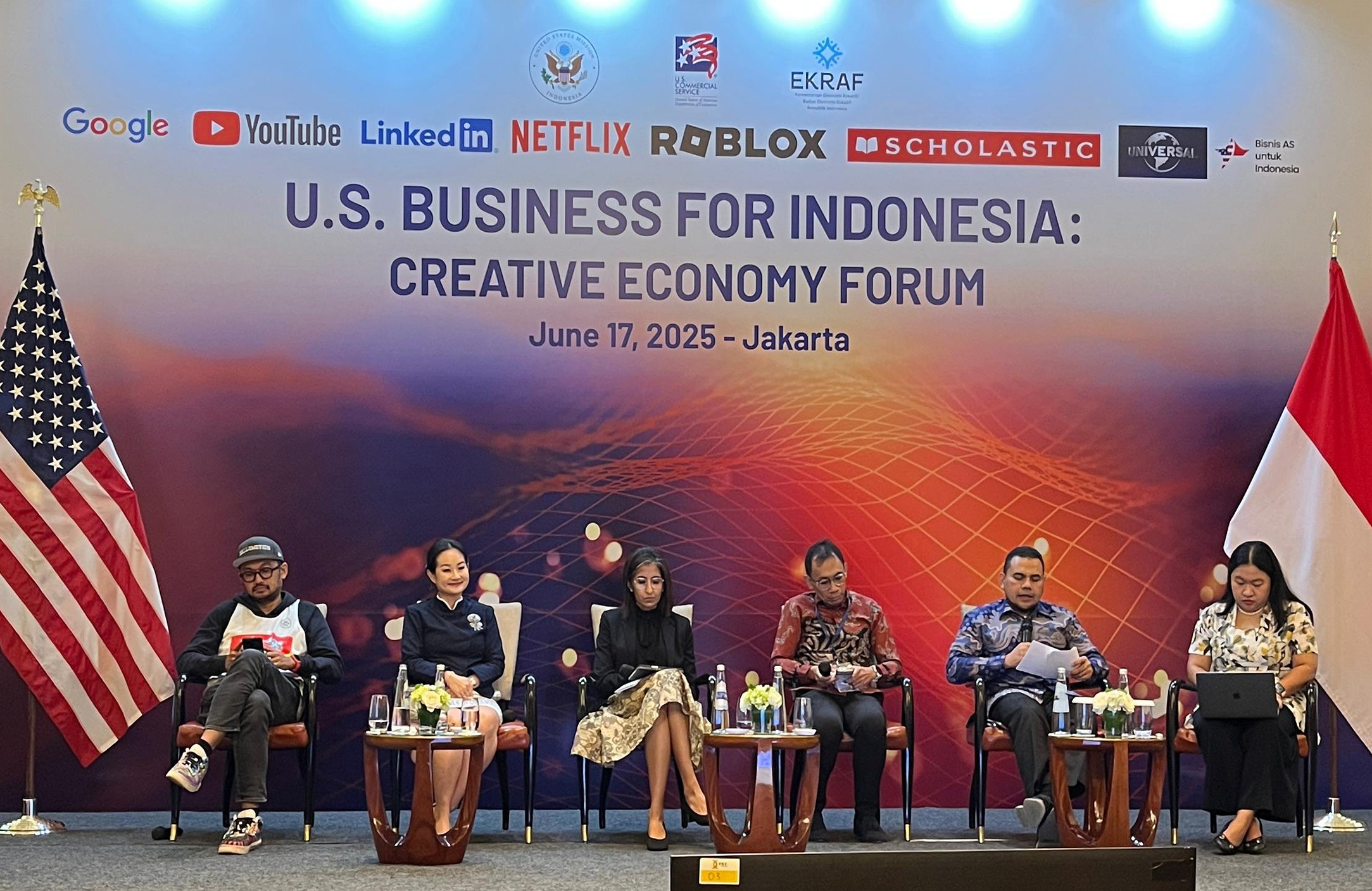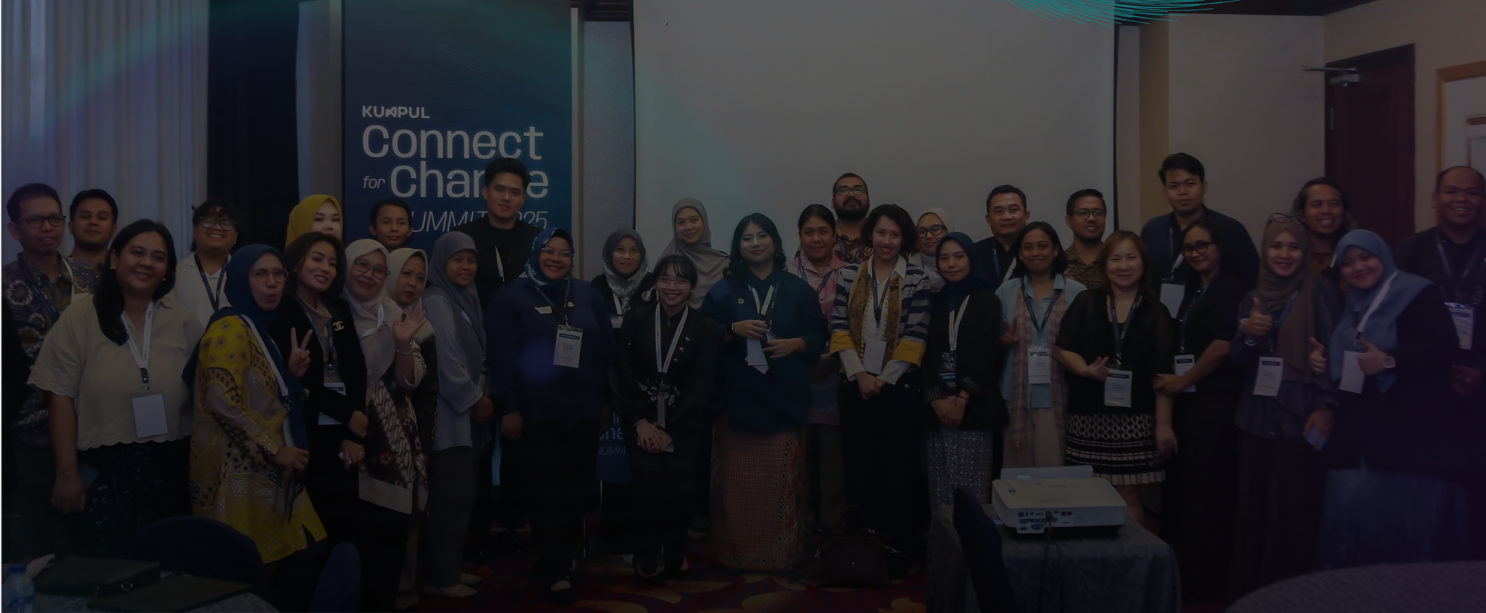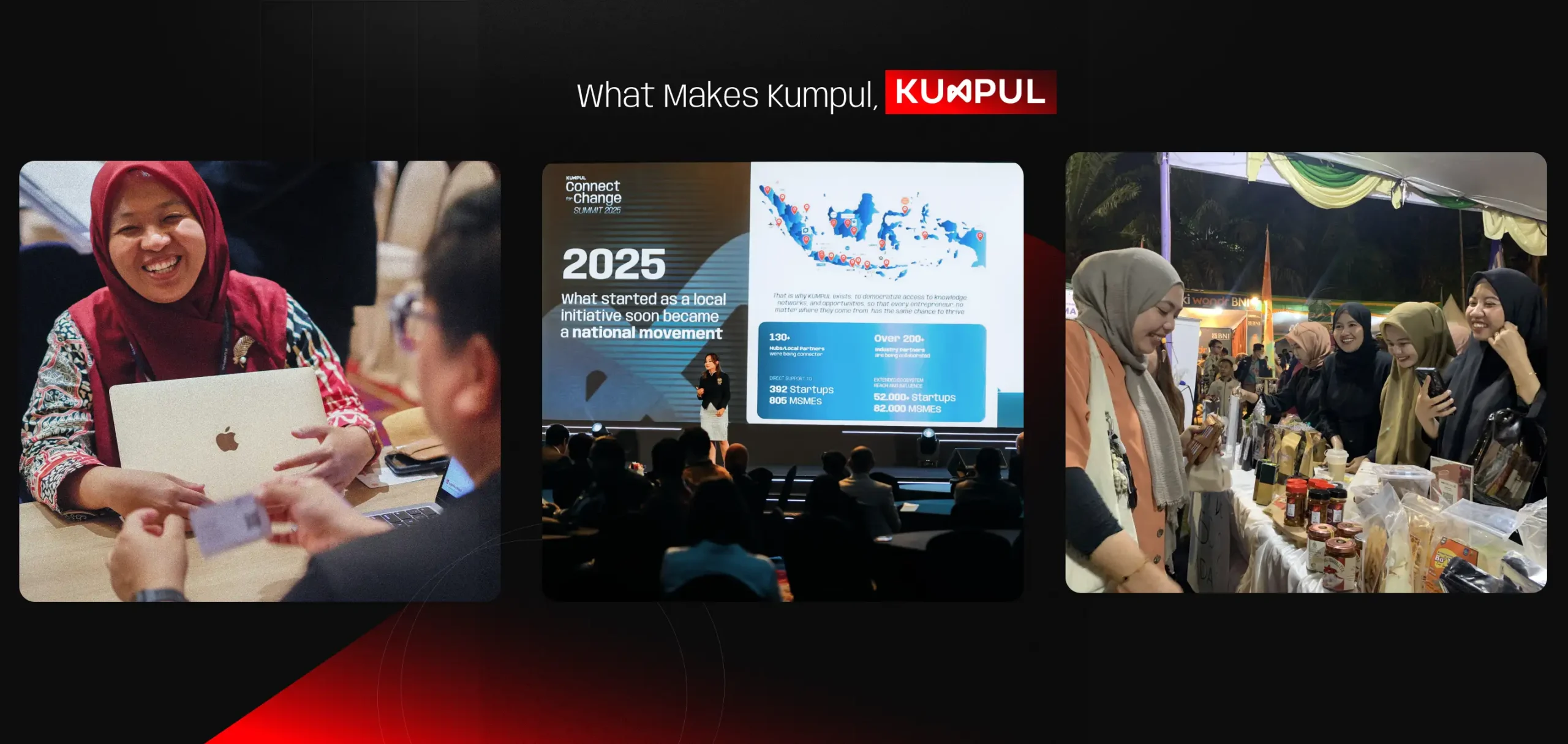On 17 June 2025, Faye Wongso, Chairperson of KUMPUL joined a high-level panel at the U.S. Business for Indonesia: Creative Economy Forum, alongside leaders from the Ministry of Creative Economy, global tech platforms such as YouTube and LinkedIn, and prominent local creative players including HelloMotion. The theme: Enabling Creative Economy Infrastructure. It was no accident that “infrastructure” and “inclusion” emerged as recurring motifs, Indonesia’s creative economy possesses immense promise, but the gaps in digital infrastructure and in research & development (R&D) investment threaten to restrict that promise to a few urban centers.
Why Ideas Can’t Thrive Without the Right Infrastructure
Indonesia is blessed with a vibrant society, cultural richness, and a rapidly growing digital economy. Yet, several structural constraints limit its creative sector’s ability to scale equitably.
One statistic in particular stood out during the Forum: Indonesia allocates only about 0.28% of its national spending to R&D, a level many panelists, including Faye Wongso, described as far too low to undergird sustainable innovation. Without stronger R&D investment, breakthroughs and creative risk-taking tend to be localized in, or near, the hubs of Jakarta, Bandung, Surabaya, etc. Regions with fewer resources lag behind.
Digital infrastructure also remains uneven. According to OECD, internet access has expanded rapidly, and in 2022, approximately 82% of households accessed the internet at some minimal speed over the past three months, up from 42% in 2011. However, broadband adoption, reliable connectivity, and digital speed remain much weaker in remote and rural areas. And beyond access, there are weaknesses in skills, regulatory clarity, and physical infrastructure (shared workspaces, labs, studios) needed for creative production.
If these gaps remain unaddressed, creative opportunity will continue to concentrate in major cities, while remote provinces and smaller towns, home to abundant creativity and cultural diversity, fail to contribute fully to or benefit from Indonesia’s creative economy.
What Indonesia Can Learn from a Kitchen in Washington, D.C.
The Forum drew on shining examples globally to imagine what Indonesia could adapt or build. Faye Wongso reflected on her experience as an IVLP (International Visitor Leadership Program) awardee in 2018, where she visited Union Kitchen in Washington, D.C. There, she saw a “food hub” model: early‐stage entrepreneurs sharing kitchen space, storage, mentoring, administrative help and connecting to distribution channels. Such hubs act as accelerators, not only of individual business growth, but ripple effects across supply chains, logistics, marketing, even policy.
Union Kitchen’s collaborative infrastructure shows how bringing together resources, physical, financial, human, can dramatically multiply the impact of any single creative actor. From small studios to local artisan groups, all can benefit. Adapting this model in Indonesia might mean regional hubs for music, film, craft, digital art; public-private shared facilities; or incubators that are physically accessible outside Jakarta.
When Silicon Valley Meets Jakarta: Building Creative Bridges
The Forum’s strength lay in bringing together actors across sectors: the Indonesian government, global platforms (from Netflix to LinkedIn to Roblox to Scholastic), and local creative leaders. A recurring insight: infrastructure is not only about cables or studios, but also about talent pipelines, mentoring, networking, and funding, especially for founders and creators outside metropolitan areas.
Several platforms committed to supporting reskilling and content creation tools. Meanwhile, local creatives emphasized the need for grant programs or micro-financing, public policy that lowers barriers, and regulatory frameworks that protect creators (copyright, digital rights).
Another anchor was global connectivity: what can be learned from (and with) international platforms in terms of distribution, monetization, or content localization. But equally, how global actors can help build local capacity: investing in regional data centers, local content partnerships, and ensuring infrastructure (digital and physical) reaches the peripheries.
The Future Belongs to Creators Everywhere, If We Build It Right
Looking ahead, the trajectory of Indonesia’s creative economy depends heavily on three interconnected pillars: infrastructure, talent & inclusion, and R&D investment. At the forum, Faye Wongso reiterated that for Indonesia to compete on a global scale, not just in output, but in originality and diversity, the creative ecosystem must be collaborative, long-term, and inclusive. Creators in remote areas deserve the same chance to access mentorship or funding as those in the capital; quality infrastructure must not be a luxury but a baseline.
For investors, for government agencies, for global tech platforms, for nonprofits, and for the creative community itself, this is a moment to align. Policies and funding streams must reflect more than short-term gains; they must build resilient infrastructures (digital, physical, institutional) that endure. Regional hubs, shared innovation labs, support for R&D, strengthened internet and broadband access, and mechanisms for global partnerships all form part of a shared blueprint.
If Indonesia can ensure that every creative voice, urban or rural, can plug into opportunity, then what the Forum discussed on 17 June may soon translate into nationwide impact. The foundations of a truly inclusive, innovative, globally competitive creative economy are within reach.
Grow Locally, Expand Globally with KUMPUL
KUMPUL accelerates growth by connecting entrepreneurs with strategic networks, exclusive resources, and expert insights. As Indonesia’s leading entrepreneurship ecosystem enabler, KUMPUL strengthens local communities while facilitating two-way global market access, helping international businesses tap into Indonesia’s dynamic ecosystem and supporting local entrepreneurs in expanding worldwide. Through impactful collaborations with key industry players, KUMPUL empowers entrepreneurs to scale efficiently, compete globally, and drive meaningful impact.
Ready to be part of this journey? Complete this form and join KUMPUL in shaping the future of entrepreneurship!





